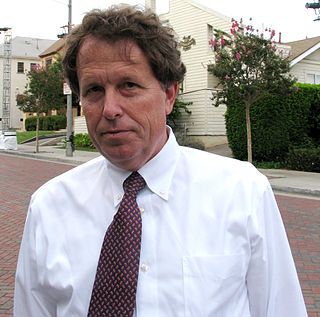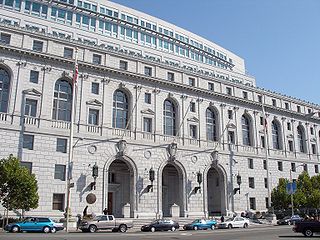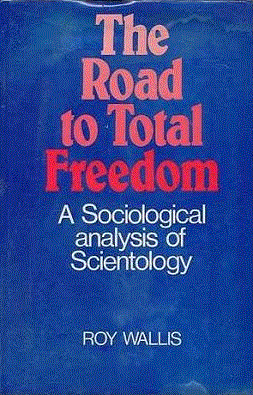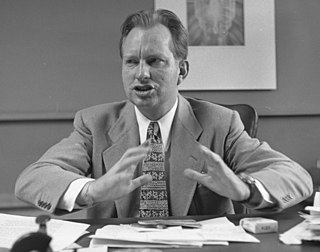The Church of Scientology has been involved in court disputes in several countries. In some cases, when the Church has initiated the dispute, questions have been raised as to its motives. The Church of Scientology says that its use of the legal system is necessary to protect its intellectual property and its right to freedom of religion. Critics say that most of the organization's legal claims are designed to harass those who criticize it and its manipulative business practices.
Malicious prosecution is a common law intentional tort. Like the tort of abuse of process, its elements include (1) intentionally instituting and pursuing a legal action that is (2) brought without probable cause and (3) dismissed in favor of the victim of the malicious prosecution. In some jurisdictions, the term "malicious prosecution" denotes the wrongful initiation of criminal proceedings, while the term "malicious use of process" denotes the wrongful initiation of civil proceedings.

Since its inception in 1954, the Church of Scientology has been involved in a number of controversies, including its stance on psychiatry, Scientology's legitimacy as a religion, the Church's aggressive attitude in dealing with its perceived enemies and critics, allegations of mistreatment of members, and predatory financial practices; for example, the high cost of religious training:191 and perceived exploitative practices. When mainstream media outlets have reported alleged abuses, representatives of the church have tended to deny such allegations.
Steven Fishman is an American former Scientologist whose inclusion of Scientology's secret Operating Thetan levels in a court filing led to the first public confirmation by the Church of Scientology of its doctrines regarding Xenu and the Wall of Fire.

Operation Snow White was a criminal conspiracy by the Church of Scientology during the 1970s to purge unfavorable records about Scientology and its founder, L. Ron Hubbard. This project included a series of infiltrations into and thefts from 136 government agencies, foreign embassies and consulates, as well as private organizations critical of Scientology, carried out by Church members in more than 30 countries. It was one of the largest infiltrations of the United States government in history, with up to 5,000 covert agents. This operation also exposed the Scientology plot "Operation Freakout", because Operation Snow White was the case that initiated the U.S. government's investigation of the Church.

The term Fair Game is used to describe policies and practices carried out by the Church of Scientology towards people and groups it perceives as its enemies. Founder of Scientology, L. Ron Hubbard, established the policy in the 1950s, in response to criticism both from within and outside his organization. Individuals or groups who are "Fair Game" are judged to be a threat to the Church and, according to the policy, can be punished and harassed using any and all means possible. In 1968, Hubbard officially canceled use of the term "Fair Game" because of negative public relations it caused, although the Church's aggressive response to criticism continued.

Bare-faced Messiah: The True Story of L. Ron Hubbard is a posthumous biography of Scientology founder L. Ron Hubbard by British journalist Russell Miller. First published in the United Kingdom on 26 October 1987, the book takes a critical perspective, challenging the Church of Scientology's account of Hubbard's life and work. It quotes extensively from official documents acquired using the Freedom of Information Act and from Hubbard's personal papers, which were obtained via a defector from Scientology. It was also published in Australia, Canada and the United States.
Tortious interference, also known as intentional interference with contractual relations, in the common law of torts, occurs when one person intentionally damages someone else's contractual or business relationships with a third party, causing economic harm. As an example, someone could use blackmail to induce a contractor into breaking a contract; they could threaten a supplier to prevent them from supplying goods or services to another party; or they could obstruct someone's ability to honor a contract with a client by deliberately refusing to deliver necessary goods.
The Safe Environment Fund was a Church of Scientology organization that raised funds for the defense of the Scientology executives indicted for their role in a criminal conspiracy against the United States Government and numerous other public and private organizations and individuals. The term "safe environment" was used by Scientology founder L. Ron Hubbard to refer to his conception of Scientology's organizations as a bulwark against what he described as "the dangerous environment of the wog [non-Scientology] world, of injustice, sudden dismissals, war, atomic bombs" which would "only persist and trouble us if we fail to spread our safe environment around the world."

Gerald "Gerry" Armstrong is a former member of the Church of Scientology. In 1980, the Church assigned Armstrong, then a member of the Church's elite Sea Org, to organize some personal papers of L. Ron Hubbard that were to serve as the basis of a new biography of Hubbard. A non-Scientologist, Omar Garrison, had been hired to write the book. As part of his assignment, Armstrong also requested Hubbard's war records from the Navy and his transcripts from George Washington University.

The military career of L. Ron Hubbard saw the future founder of Scientology serving in the United States Armed Forces as a member of the Marine Corps Reserve and, between 1941–50, the Navy Reserve. He saw active service between 1941–45, during World War II, as a naval Lieutenant and later as a Lieutenant. After the war he was mustered out of active service and resigned his commission in 1950.
In regards to copyright on religious works, it is not always clear who the rightsholder is. Under the provisions of the Berne Convention, copyright is granted to the author on the creation of the work. Several religions claim that all or some of their works were authored by their god or gods.
People v. Berry is a voluntary manslaughter case that is widely taught in American law schools for the appellate court's unusual interpretation of heat of passion doctrine. Although the defendant had time to "cool down" between his wife's verbal admission of infidelity and the killing, the California Supreme Court held that the provocation in this case was adequate to reduce a murder charge to manslaughter. The lower court had relied on the traditional definition of "adequate provocation" in its jury instructions. The California Supreme Court reversed Berry's murder conviction, while affirming Berry's conviction for assault using deadly force.

The California Public Records Act was a law passed by the California State Legislature and signed by governor Ronald Reagan in 1968 requiring inspection or disclosure of governmental records to the public upon request, unless exempted by law.

Kendrick Lichty Moxon is an American Scientology official and an attorney with the law firm Moxon & Kobrin. He practices in Los Angeles, California, and is a lead counsel for the Church of Scientology. Moxon received a B.A. from American University in 1972, and a J.D. degree from George Mason University in 1981. He was admitted to the Washington, D.C. bar association in 1984, and the State Bar of California in 1987. Moxon's early work for the Church of Scientology involved legal affairs, and he also held the title of "reverend". He worked out of the Scientology intelligence agency known as the Guardian's Office (GO), and was named as an unindicted co-conspirator after the Federal Bureau of Investigation's investigation into criminal activities by Scientology operatives called "Operation Snow White". An evidence stipulation in the case signed by both parties stated he had provided false handwriting samples to the FBI; Moxon has since said that he did not "knowingly supply" false handwriting samples.

Paul Robert Morantz was an American attorney and investigative journalist. He was known for taking legal cases alleging brainwashing by cults, self-help groups and for sexual misconduct by psychotherapists. His successful prosecution of Synanon led to an attempt against his life, by means of a rattlesnake.

DVD Copy Control Association, Inc. v. Bunner was a lawsuit that was filed by the DVD Copy Control Association in California, accusing Andrew Bunner and several others of misappropriation of trade secrets under California's implementation of the Uniform Trade Secrets Act. The case went through several rounds of appeals and was last heard and decided in February 2004 by the California Court of Appeal for the Sixth District.

The Road to Total Freedom: A Sociological Analysis of Scientology is a non-fiction book about Scientology by sociologist Roy Wallis. Originally published in 1976 by Heinemann, it was republished in 1977 by Columbia University Press. The original manuscript was the product of Wallis's doctoral research at Oxford under the tutelage of Bryan Wilson. Wallis, after a review of the original manuscript by Scientology leaders, made edits to about 100 passages before publication.

The "Affirmations", also referred to as the "Admissions", is a document written around 1946 or 1947. It does not list an author, but it is widely believed to have been written by L. Ron Hubbard, a few years before he established Dianetics (1950), which formed the basis for Scientology (1952). The document consists of a series of statements by and addressed to Hubbard, relating to various physical, sexual, psychological and social issues that he was encountering in his life. After the Affirmations became public knowledge in 1984, the Church of Scientology initially disputed their authenticity. However, they later effectively admitted the document's authorship, describing the work in legal papers as having been "written by" Hubbard and seeking to retain ownership of it.
The tax status of the Church of Scientology in the United States has been the subject of decades of controversy and litigation. Although the Church of Scientology was initially partially exempted by the Internal Revenue Service (IRS) from paying federal income tax, its two principal entities in the United States lost this exemption in 1957 and 1968. This action was taken because of concerns that church funds were being used for the private gain of its founder L. Ron Hubbard or due to an international psychiatric conspiracy against Scientology.









